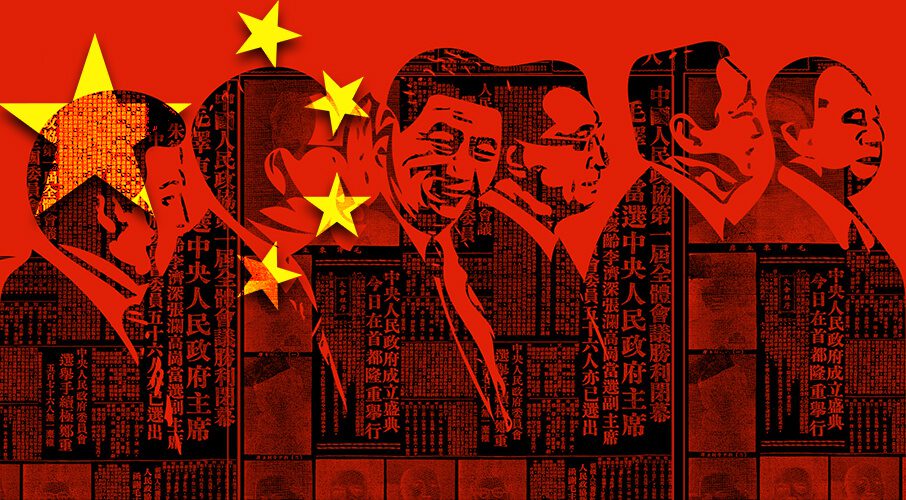 China now has a much better understanding of the West’s political weaknesses and how to exploit its military weakness in the future, writes Rob Huebert.
China now has a much better understanding of the West’s political weaknesses and how to exploit its military weakness in the future, writes Rob Huebert.
By Rob Huebert, July 7, 2020
As the coronavirus pandemic wreaks havoc in the international system, there is growing recognition that the government of China may have deliberately misled the world about the outbreak of the pandemic earlier this year.
Influential voices, such as the Macdonald–Laurier Institute, are now increasingly questioning the Chinese government’s role in supressing and misdirecting information about the spread of the virus in December and January. At the same time, others – such as the Bulletin of the Atomic Scientists – have made it clear that this outbreak is not the result of the creation or manufacture of a bio-weapon. It looks to be a naturally-occurring virus, though there is still at least the possibility it was leaked from a laboratory.
The overwhelming current scientific evidence is that the virus was not bio-engineered and not what is normally considered a bio-weapon. But this does not mean that a naturally-occurring pathogen cannot be weaponized. What if a government takes advantage of such an outbreak to gather important strategic information on an opponent, specifically their weaknesses? Would the exploitation of such an event be another example of weaponization?
Consider the following intelligence that has been produced by the current pandemic that has important strategic ramifications on the strength of the western states. The American aircraft carrier, USS Theodore Roosevelt, was forced to abandon its operational mission in the Pacific Ocean and sail to port in Guam when its crew increasingly fell victim to the virus. In addition, there was the very public removal of its captain when he felt it necessary to protect his crew by speaking out about the spread of the virus on the ship, thereby breaking the chain of command.
At the same time, the French government also recalled its most powerful aircraft carrier, the Charles De Gaulle, back to home port. In Canada, four warships have been called back earlier from overseas missions and several others will be ordered to loiter off the Canadian coast once their crews have been successfully quarantined and shown to be virus-free. For China, this is all important intelligence for the strengths and limits of western sea power.
It is also apparent that the Chinese have also moved to strengthen its regional position under the cloud of confusion and disruption provided by the current pandemic. Its actions along its borders with India, its assertion of power in Hong Kong and its increased military activities in the South China Sea are all clear indications of testing the resolve of the outside world. All of these issues are still ongoing, but the overall reaction of the international community has not been strong or particularly unified. This is further evidence of the strategic intelligence that China has been able to gather on the ability of others to respond in times of crisis.
From a political perspective, the current pandemic has also demonstrated developing weaknesses in western solidarity. This includes the growing fragility of the western alliance system as well as its commitment to democratic values. There has been no real coordination by the G7 to the pandemic. Rather, individual members, such as the United States, have been taking unilateral actions against each other.
The American attempt to halt the export of N-95 face masks to Canada is only one such example. Many leaders within NATO have also shown that they view the pandemic as an opportunity to short-circuit democratic safeguards and to increase their own political power – a list that includes Donald Trump in the US, Viktor Orbán in Hungary and Justin Trudeau in Canada, among others. President Trump has attempted to claim powers to restart the economy from the states, to name one example. In Hungary, Orbán’s party passed legislation on March 30 that cancelled all elections and gave him the power to rule by decree indefinitely. Prime Minister Trudeau attempted to reduce parliamentary oversight of the budget for two years and sought to persuade the provinces to surrender their emergency powers to him.
China now has an understanding of what is needed to severely weaken the west through the spread of an Asian-based pathogen. It now knows how to seriously reduce the fighting capabilities of the American, French and Canadian navies without a shot being fired. It understands the growing fragility of the western world’s commitment to democratic ideals.
Here in Canada, Trudeau’s continued pivot to claiming power for himself is telling. If such concentrated power was necessary, why did he not reach out to all opposition parties to form a national government? In the US, Trump’s determination to seize power for himself has become the norm. The emergence of this crisis has only showcased how weak western commitment to democratic practices is today. But even worse, the collective response seems almost non-existent.
China now has a much better understanding of the West’s political weaknesses and how to exploit its military weakness in the future. If China exploited the pandemic to gain important strategic intelligence, then COVID-19, while a natural pathogen, has indeed been weaponized; and it is one that we are ill-suited to meet.
Robert Huebert is an associate professor in the Department of Political Science at the University of Calgary.




